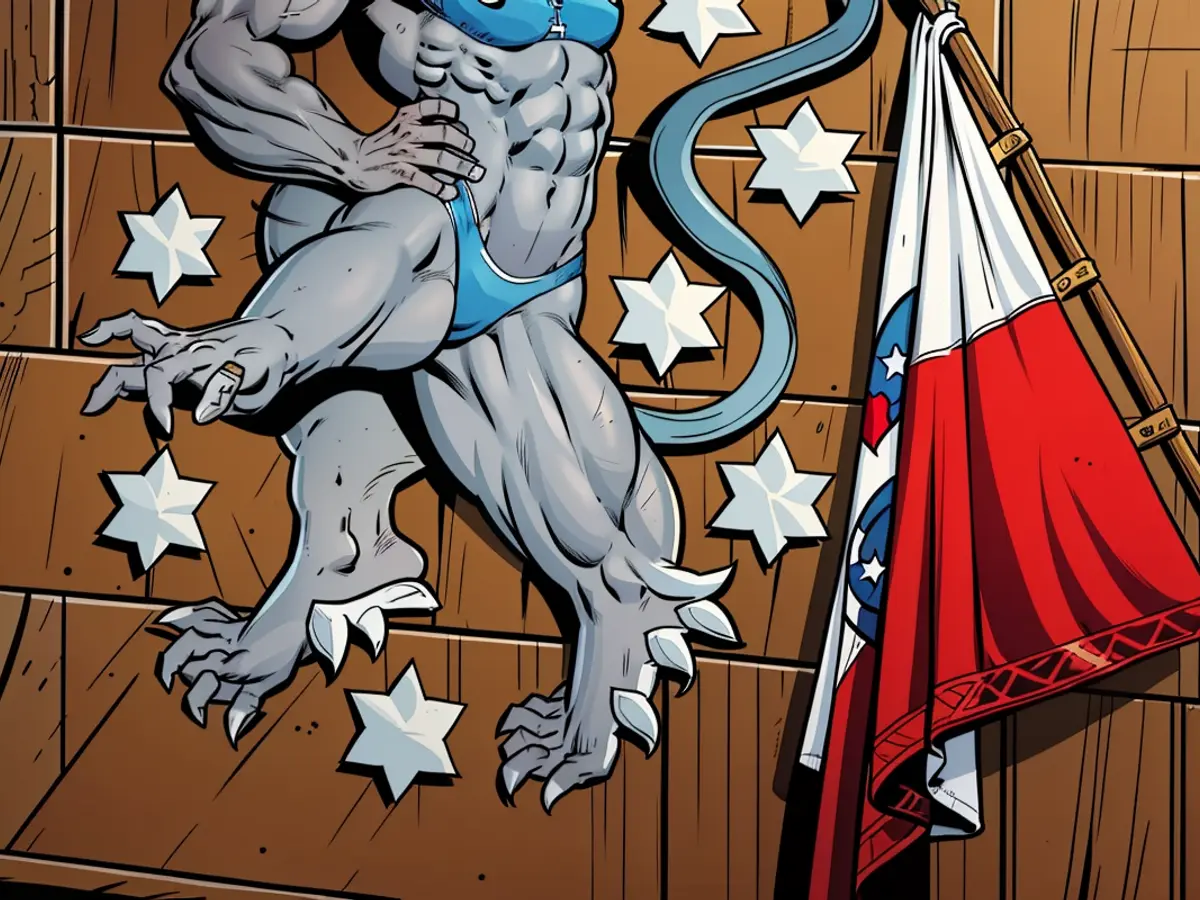In Thuringia, Hoek's AfD emerges as the dominant force – challenges in establishing a new administration
Thuringia is once again grappling with a difficult government formation process in the Erfurt parliament. The existing coalition options tested at the state level haven't yielded a majority, leaving the parties to seek unconventional paths. Björn Höcke, the AfD's regional leader, asserted his party's leadership for the new administration, but no other party is interested in a coalition with the AfD. Consequently, the role of majority maker falls to the newly formed Thuringian BSW.
The CDU, led by Mario Voigt, ended up second, projected to have received 23.8% of the votes. The Left, led by Minister President Bodo Ramelow, experienced a significant decrease in support and finished third, slightly behind the BSW with a share of 11.9-12.9%. The BSW, headed by top candidate Katja Wolf, seized the third position with 15.5-15.6% of the votes.
The SPD, the chancellor's party, suffered their worst result in a state election since the Federal Republic's inception, securing 6.0-6.2%. The Greens and FDP did not retain their Erfurt parliament seats, with the Greens garnering 3.4-3.5% and the FDP earning less than 2%.
Based on ARD and ZDF projections, the upcoming state parliament is likely to feature: AfD (31-32 seats), CDU (23 seats), BSW (15 seats), Left (12-13 seats), and SPD (6 seats).
Beyond Höcke, Voigt also claimed the responsibility of forming a new government. Voigt announced post-election talks with the SPD, stating that the CDU would be the dominant force in the middle of the future parliament. "Red-Red-Green has been voted out," he stated, aiming for a majority or a stable government.
Höcke cautioned against excluding his right-wing extremist (according to the domestic intelligence agency) party from the government formation process. "I can only warn against that," he said, stressing that any coalition without the AfD would not benefit Thuringia.
The upcoming challenge in the new parliament will be the AfD's potential to secure a blocking minority of one third of the seats. This would give them a kind of veto power, such as in decisions concerning new elections or judge appointments. The AfD could also exacerbate parliamentary stalemates.
Höcke urged other parties to engage in discussions with the AfD in the evening, emphasizing that the blocking minority would not be exploited. He criticized the "ignorant wall talk" that had previously dismissed cooperation with the AfD.
Wagenknecht, the BSW leader, expressed her party's openness to a coalition with the CDU. "We hope that we will eventually be able to form a good government with the CDU, possibly also with the SPD," she said.
Ramelow, the incumbent Minister President and the only left-wing leader at the state level, conceded defeat. The CDU, as the strongest force "in the democratic spectrum", should now lead negotiations on forming a government, Ramelow stated. He expressed support for a democratic government without the AfD, arguing, "I'm not fighting against the CDU, I'm fighting against the normalization of fascism."
The Thuringia state election saw a high voter turnout of 73.5%, according to ARD. In the 2019 state election, turnout was 64.9%. Around 1.66 million citizens were eligible to vote.
The SPD, as the sixth largest party in the upcoming Thuringia state parliament, will have a significant role to play in the government formation process. Despite their worst result in a state election, their six seats might be crucial in forming a stable coalition.
In light of the election results, the SPD, being a part of the SPD-Green-Left coalition in the federal government, might face pressure to maintain their commitment to ruling out coalitions with the AfD, a stance they have maintained due to the party's right-wing extremist views.







